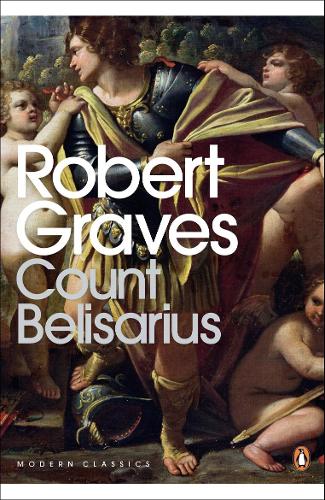
Count Belisarius
(Paperback)
Publishing Details
Count Belisarius
By (Author) Robert Graves
Introduction by John Julius Norwich
Penguin Books Ltd
Penguin Classics
31st August 2006
3rd August 2006
United Kingdom
Classifications
General
Fiction
823.912
Physical Properties
Paperback
448
Width 130mm, Height 198mm, Spine 26mm
330g
Description
The sixth century was not a peaceful time for the Roman empire. Invaders threatened on all fronties, but they grew to respect and fear the name of Belisarius, the Emperor Justinian's greatest general. With this book Robert Graves again demonstrates his command of a vast historical subject, creating a startling and vivid picture of a decadent era.
Author Bio
Robert Graves was born in 1895 in Wimbledon, the son of Irish writer Perceval Graves and Amalia Von Ranke. He went from school to the First World War, where he became a captain in the Royal Welsh Fusiliers. After this, apart from a year as Professor of English Literature at Cairo University in 1926, he earned his living by writing, mostly historical novels, including- I, Claudius; Claudius the God; Count Belisarius; Wife of Mr Milton; Sergeant Lamb of the Ninth; Proceed, Sergeant Lamb; The Golden Fleece; They Hanged My Saintly Billy; and The Isles of Unwisdom. He wrote his autobiography, Goodbye to All That, in 1929, and it was soon established as a modern classic. The Times Literary Supplement acclaimed it as 'one of the most candid self portraits of a poet, warts and all, ever painted', as well as being of exceptional value as a war document. Two of his most discussed non-fiction works are The White Goddess, which presents a new view of the poetic impulse, and The Nazarine Gospel Restored (with Joshua Podro), a re-examination of primitive Christianity. He also translated Apuleius, Lucan and Suetonius for the Penguin Classics, and compiled the first modern dictionary of Greek Mythology, The Greek Myths. His translation of The Rubiyt of Omar Khayym
